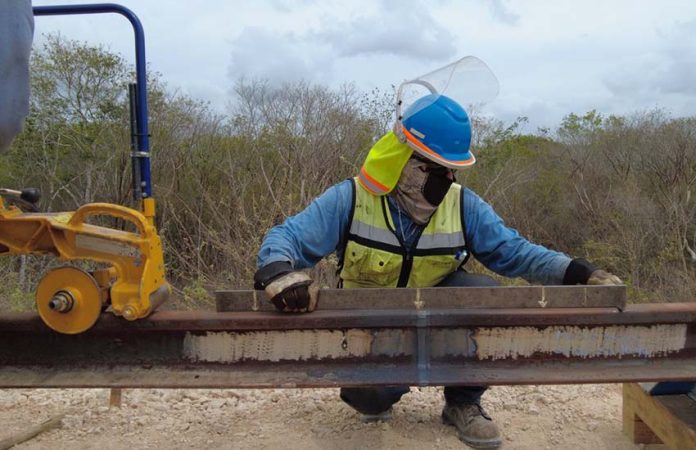A judge has revoked a suspension order against construction of the Cancún-Playa del Carmen section of the Maya Train railroad, allowing the federal government to proceed with the project.
Work on the northern stretch of section 5 of the 1,500-kilometer railroad (Tramo 5 Norte) stopped in August after the nongovernmental organization the National Council of Strategic Litigation successfully challenged the project in court, on the grounds that an environmental impact statement (EIS) hadn’t been completed and approved.
On Tuesday, Mérida-based federal judge Adrián Fernando Novelo Pérez lifted the suspension order he issued early last month because the federal Environment Ministry has now approved the EIS for Tramo 5 Norte.
His ruling came in response to an application to lift the suspension filed by the National Tourism Promotion Fund, which is managing the entire US $10 billion Maya Train project.
President López Obrador mentioned the decision at his regular news conference on Wednesday, declaring that “all the injunctions” on the government train project have been overturned — although a suspension order against the controversial Playa del Carmen-Tulum section of the railroad, the southern stretch of section 5, still stands.
“The pseudoenvironmentalists were wrong,” he said, using a term with which he frequently derides opponents of the Maya Train.
López Obrador also said he would travel to Mexico’s southeast every three weeks to inspect progress on his signature infrastructure project, which is slated to begin operations at the end of 2023.
Construction of the railroad – which will run through Tabasco, Campeche, Yucatán, Quintana Roo and Chiapas – is “historic,” he said, asserting that only former president Porfirio Díaz – who ruled in the late 19th and early 20th centuries – had done something similar.
However, under Diáz, railroads were built by foreign companies, López Obrador said, whereas Mexican firms are working on the Maya Train project.
“This is a passenger and freight railroad, for tourism, to connect all the archaeological areas, … that is being built with the participation of Mexican companies without [taking out] loans, with money from the budget that was previously stolen but which now … [allows] us to invest in this,” he said.
With reports from La Jornada and El Universal
